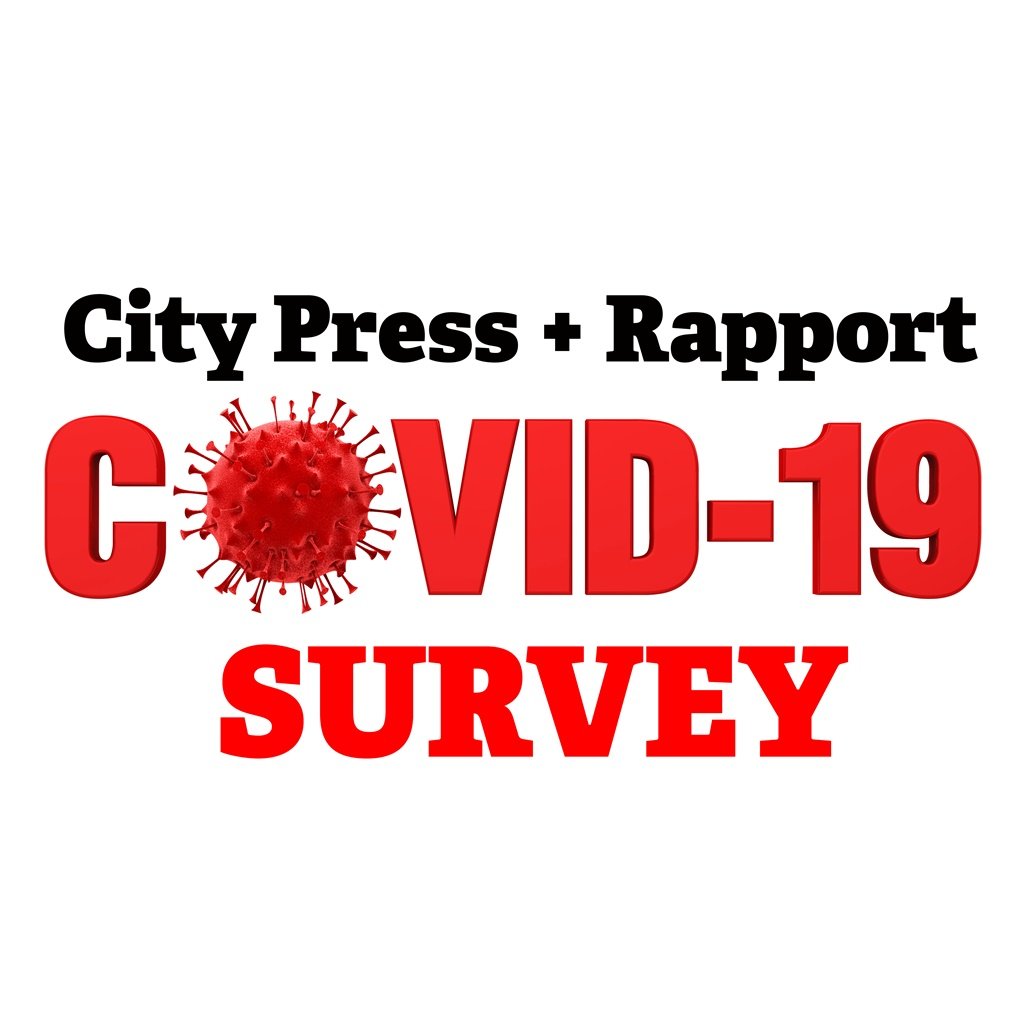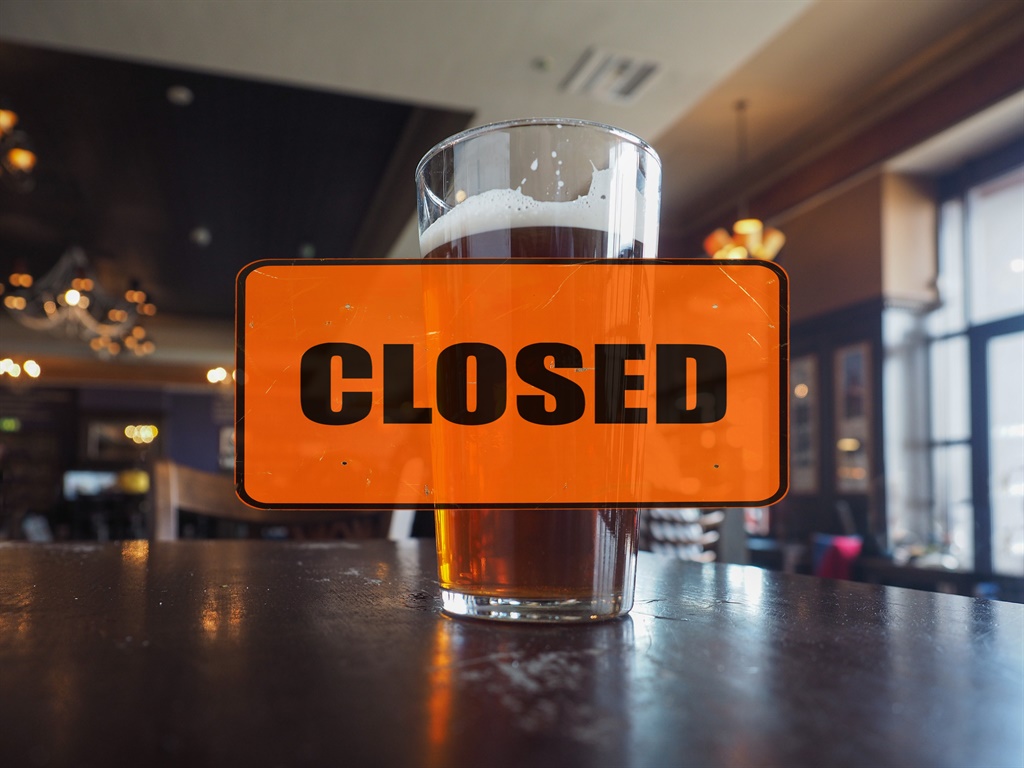
After initially approving government’s stringent measures to curb the spread of Covid-19, citizens suffering the economic aftermath are now gatvol
Support for the lockdown imposed on South Africans, as a measure to curb the spread of the Covid-19 coronavirus, has plummeted as the socioeconomic realities of living under harsh restrictions take their toll on citizens.
With the initial 21-day lockdown having enjoyed overwhelming support from citizens, even when it was extended by two weeks, the extension of the period of restrictions is going to become a much harder sell.
In his televised address to the nation on Tuesday evening, President Cyril Ramaphosa acknowledged the hardship that the stringent lockdown had wrought on citizens, adding that a raft of measures would be introduced to alleviate their plight.
Among these was a R500 billion economic rescue and social relief package. He also eased the lockdown to a slightly less restrictive level 4 – as part of a risk-adjusted system comprising five levels – to reopen some economic activity.
A nationwide poll conducted by Victory Research for City Press and its sister publication, Rapport, reveals that, while “strong” support for the lockdown was at 77% when the measure was initially announced on March 23, it dropped to 70% when it was extended from April 16 to April 30.
By this week, as Ramaphosa was about to extend the lockdown – albeit with some easing of restrictions – only 38% of respondents expressed strong support for this.
Read: Ramaphosa levels with SA on plans to reopen the economy
This is in sharp contrast to the mere 9% of respondents who strongly opposed the lockdown initially, the 14% of opposers when an extension was implemented, and the 43% who are strongly opposed to the measure continuing beyond April 30.
Other findings in the City Press-Rapport poll include high approval for Ramaphosa, as well as for Health Minister Zweli Mkhize and Police Minister Bheki Cele, and high approval of government’s handling of the Covid-19 crisis.
There was also strong support for the ban on the sale of alcohol and tobacco products. This was before the president’s announcement of the imminent lifting of restrictions on tobacco.
Surprisingly, there was a sizeable proportion of people who were strongly opposed to getting vaccinated against Covid-19 when such a vaccine became available.
Despite the dramatic decline in the popularity of the lockdown, the overwhelming majority felt it was necessary.
Regarding the question posed about whether the lockdown was necessary “because, even though it is hurting the economy and causing job losses and large-scale social disruption, many lives would have been lost without it”, 67% of respondents strongly agreed.
Seventy-four percent of minorities strongly agreed, as did 66% of black people. Only 19% of respondents strongly felt that the lockdown was an overreaction.
Victory Research director Ryan Coetzee said the majority of citizens were now faced with the socioeconomic challenges of living in confinement, which made it difficult to continue supporting the measure.
A minority of citizens, who had the economic means to survive under the tough conditions, were more accommodating of another extension.
The poll was conducted between April 15 and 23 among a representative sample of 600 people using a random digit-dialling design.
It was conducted in both urban and rural South Africa, and the sample was representative of the country’s demographics.
It has a confidence rate of 95% and a margin of error of 4%, which is best practice for such a poll.
Ramaphosa's high approval rating
The poll found that 67% of respondents strongly approved of the president’s handling of the pandemic – as opposed to just 7%, who strongly disapproved.
Mkhize received a 63% approval rating, with just 7% strongly disapproving; while Cele got 50% strong approval and 12% disapproval.
When it came to black respondents, Ramaphosa received a 65% strong approval, Mkhize got 67% and Cele 56%. Among minorities, Ramaphosa scored a 73% strong approval rating, Mkhize 47% and Cele 29%.
An April 2019 poll by Victory Research had Ramaphosa with a 37% strong approval rating. This was 45% among black people and just 10% among minorities. Strong disapproval was 23% among all respondents; it had a 17% score among black people and a high 38% among minorities.
Researcher Gareth van Onselen attributed the high approval for the president to his having acted decisively and to swift action by government to put in place measures to slow down the spread of the virus.
The indicators showed that the public was pleased to see the country’s leadership get on top of the situation, hence their support for such measures.
“The fact is that individuals tend to gravitate towards decisiveness and authority during times of disaster,” said Van Onselen.
On the question of whether they had faith in government’s ability to keep the Covid-19 pandemic under control, 56% of respondents strongly felt that the authorities would be able to do so.
But only 40% of minorities had strong faith in the authorities, as opposed to 60% of black people.
Strong support for controversial bans
In what Coetzee described as the rebuttal of the Twitterverse, there was very strong support for government’s prohibition of alcohol and tobacco sales.
Seventy-one percent of respondents strongly supported the alcohol ban, with only 17% strongly opposing it. Among black respondents, 73% supported it; and among minorities, 67% strongly supported it.
Regarding the tobacco ban, 65% were strongly in favour and 22% were strongly opposed.
Broken down by race, 72% of black people were strongly in favour of the ban, as were 43% of minorities.
There was much less support for the ban on non-food items in supermarkets. Only 40% strongly supported the ban, as opposed to the 37% who strongly opposed it.
Forty-four percent of black respondents were strongly in support, as opposed to 37% who strongly opposed it.
Among minorities, the strong support was down to 27%, with strong opposition at 35%. Support for the ban on exercise was at 51%, while opposition was at 30%.
Racially, 51% of black people strongly supported it, as did 44% of minorities.
Shock backing for 'excessive force'
Yet another statistic that came as a shock was people’s support for the heavy-handed approach of law enforcement officials during the lockdown: 51% were strongly in favour of excessive force being used by law enforcement officials tasked with ensuring that lockdown measures were being complied with.
When asked if actions by law enforcement officers that resulted in “humiliating people” – by making them do exercises in public after breaking lockdown rules, for instance – were justifiable, 30% said they thought this was a measure necessary to curb the spread of the virus.
Read: Mboweni announces tax breaks for businesses to boost job creation
When the survey went further, asking whether the beating of people using sjamboks was justifiable, a startling 16% still thought it was necessary.
More astounding was the 5% who responded that law enforcement officials shooting at citizens thought to have broken lockdown regulations was permissible.
Van Onselen said this was yet another demonstration that citizens favoured security and identified with this through authoritarian behaviour, which they regarded as a sign of taking charge and keeping the country safe.
Coetzee pointed to the difference in this finding and the outcry over security force brutality on social media.
Economic hardship bites
Evidence from the poll also indicates that financial constraints have played a significant role in the drastic and overwhelming change of heart from citizens who initially supported the lockdown.
The question was asked: “If the current lockdown measures were to persist, how long would you be able to buy food and essentials for you and your family?”
In response, 18% said they could not afford to go even a week, while a shocking 75% of participants – most of them black South Africans – said they would not be able to sustain themselves for a month.
Nine percent of respondents who were earning wages or salaries before the lockdown said they had experienced a decline in income.
“Twenty-seven percent of minorities said they had experienced this, as did 16% of black people.
The percentage of respondents who were not working before the lockdown – not necessarily a reflection of the unemployment rate – was 46%, with 50% being black and 29% being minorities.
The survey found an increasing number of citizens saying they would not be able to pay their rent or bond if the current situation persisted.
Rejection of vaccines
As governments and pharmaceutical companies work tirelessly, and in collaboration, to come up with a vaccine that will put a stop to Covid-19 by boosting people’s immune systems – thereby enabling them to fight the pandemic – a staggering 21% of participants said they would not be willing to be vaccinated.
While those strongly in favour of vaccinations was above 70% across the race groups, those strongly opposed to it among black people was 22%, and it was 19% among minorities.
This is significant because, should a successful vaccine be found, there will be a large part of the population unwilling to benefit from this, which will pose a continued health risk to the country.
It seems to fit in with a global anti-vaccination sentiment, which has been decried as dangerous by health authorities and scientists alike.
| |||||||||||||
| |||||||||||||




 Publications
Publications
 Partners
Partners










